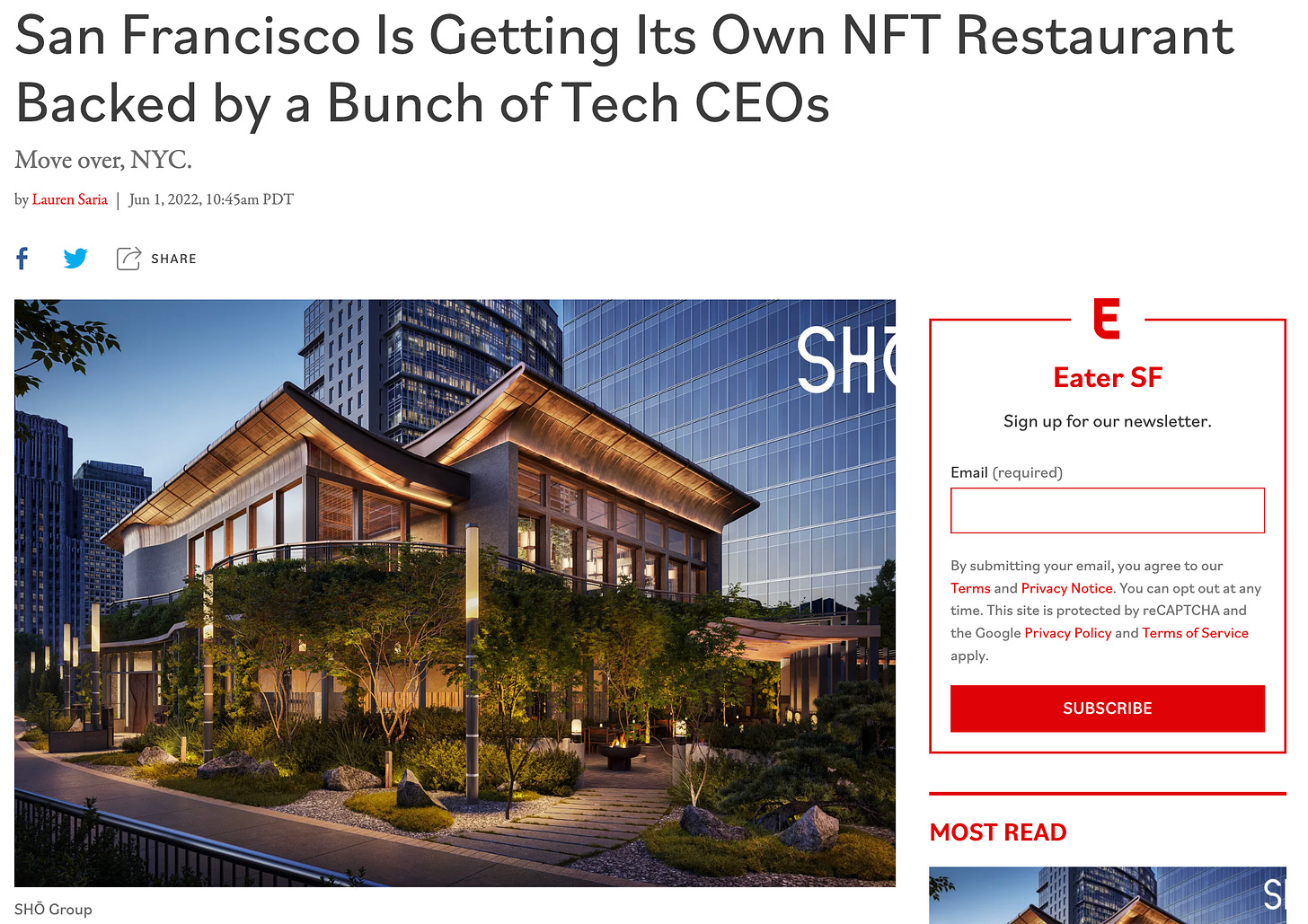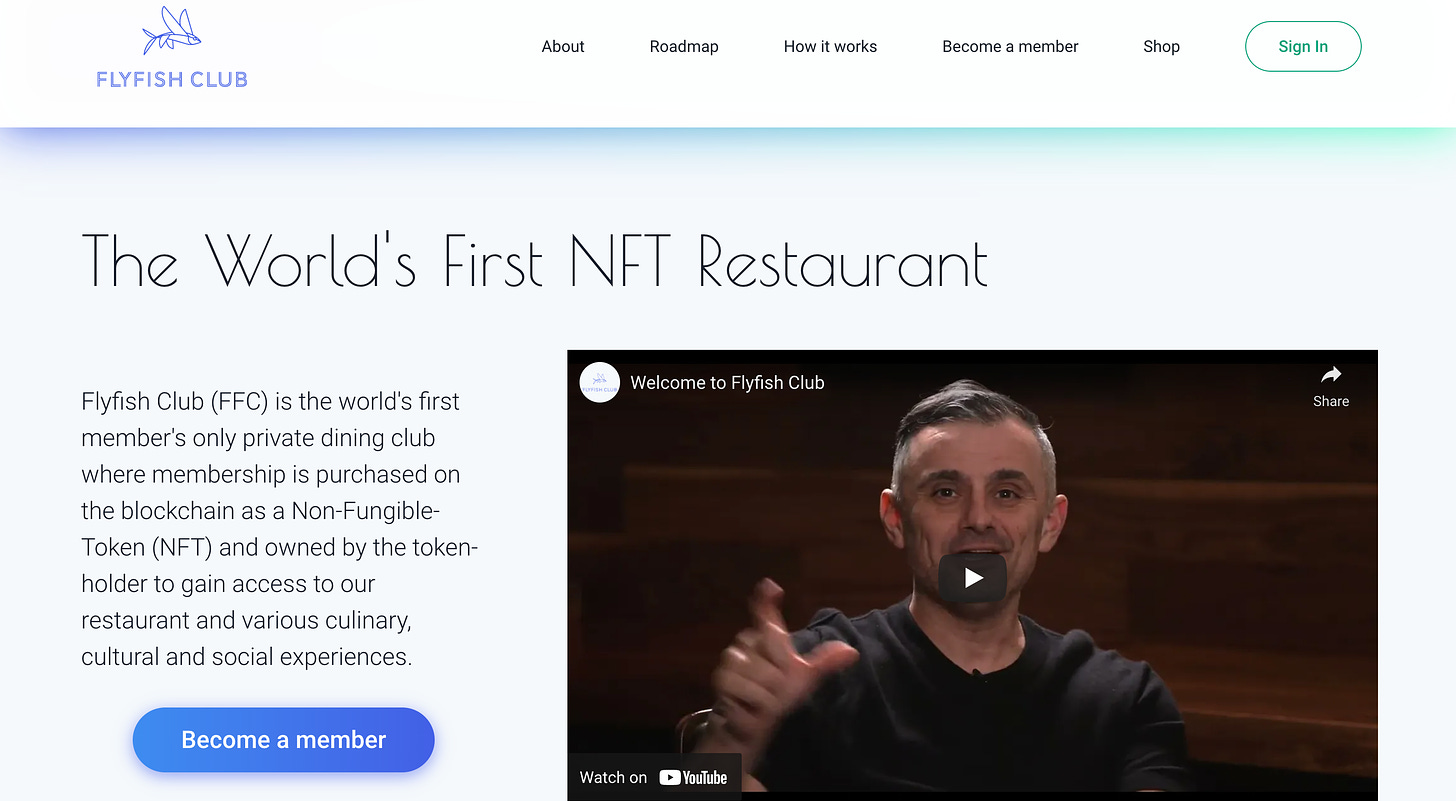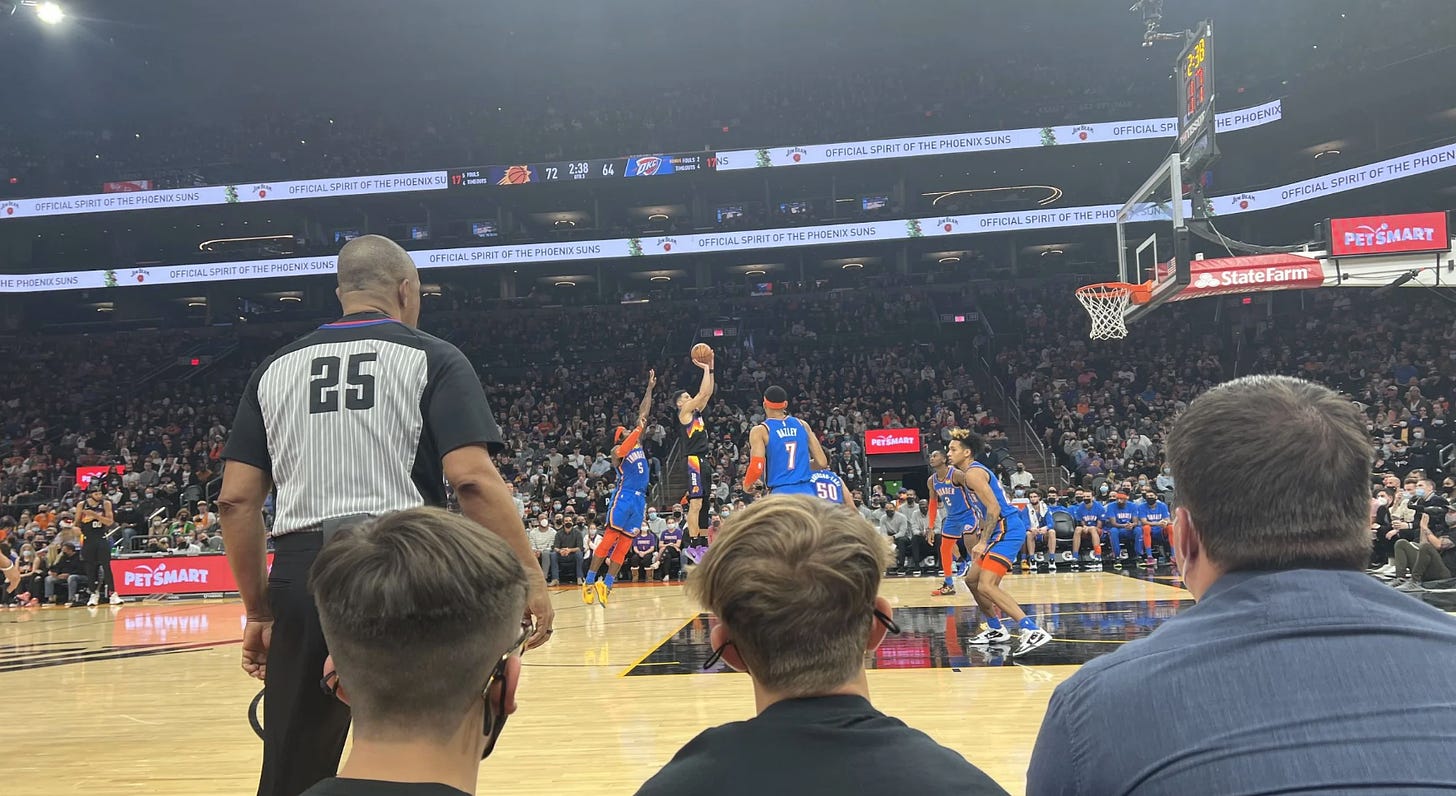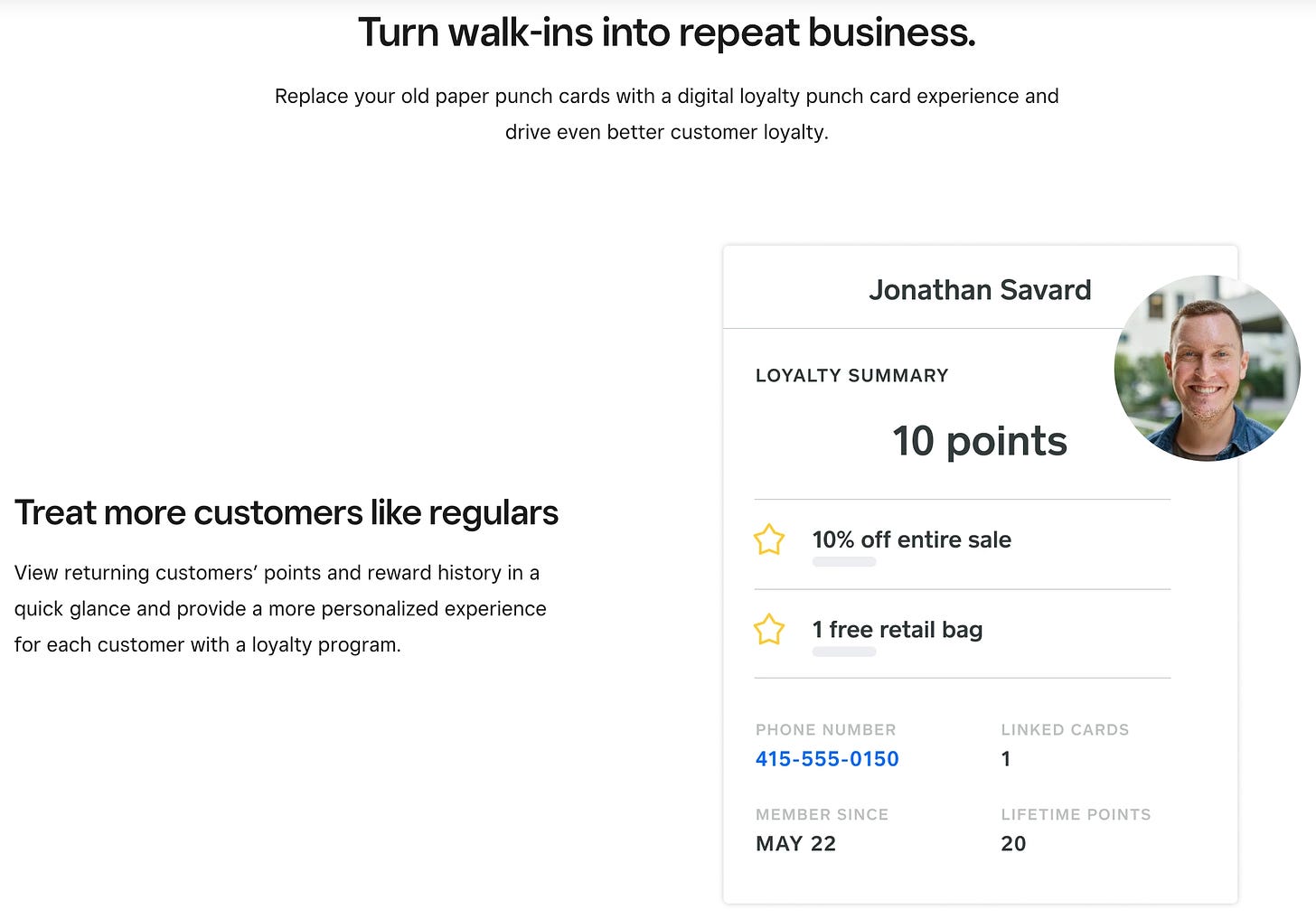By this point, we know NFTs will be a part of fashion, gaming, music, and other industries. But food? You bet your hungry stomach that NFTs are coming and they will redefine what ‘members-only’ might look like.
A friend sent me this article yesterday.
Interestinggg.I came across this concept for the first time earlier this year with Flyfish Club, the “World’s first NFT Restaurant” by none other than Gary Vaynerchuck (TLDR this guy is a modern day media mogul and is a big proponent of NFTs and what the technology enables).
Let’s get back to SHŌ. So what caught my eye that caused me to write about this?
😳 These aren’t anonymous crypto-native folks. These are well-established business/tech figures that are worth combined billions. Why is that noteworthy?
We aspire for exclusivity: Access to exclusive experiences or status are inherent in us as humans.
They’re CEOs of B2B companies: Their clients are other businesses, not individuals like you or me.
They understand the importance of customer retention: This is for B2B and B2C alike. Acquiring a customer is only half the battle. Keeping them around is the real challenge and if done successfully, the real reward.
As a business that has clients spending millions a dollars a year on your services, you want to provide them a special experience, an exclusive experience, something different than having front row seats to that sports game. That’s been done so many times and causes eyes to glaze over. I know it’s hard to imagine for average folks like us, but it’s true.
That is probably one of the reasons for why Salesforce is investing in SHŌ as well. They understand the advantage this access could mean for business. A lot is spent on wining and dining clients. Why not be strategic about it then?
Great, rich people get these cool experiences, what about us? As of now, I see 3 categories of NFT application for the FNB (Food and Beverage) industry, and I’m sure there are more.
Membership only restaurants/experiences: SHŌ, Flyfish Club, and E11EVEN.
FNB experiences that optionally incorporate NFTs: Open to the public but specific experiences/perks are only available to holders. Food Fighters (from the founders of Bored and Hungry) are doing this. Think of it like First Class vs. Economy on a flight.
Platforms that incorporate NFTs for discovery and retention: I’m particularly excited about this one because I think there is the largest potential for impact, particularly for smaller establishments. However, I believe this is the hardest to scaledue to the network effects required. Plae is taking a stab at this through UGC content while incorporating NFTs for loyalty.
Expanding on the last point a bit more, POS (point of sale) platforms like Square and Toast already incorporate loyalty programs. Have you put in your phone number or e-mail into one of the iPad looking things to get loyalty points?
But…what if these points were not specific to one establishment, sorta like how your credit card points could be redeemed for a variety of rewards?
Or what if you had a Square or Toast NFT that provided a set of benefits for all establishments on that POS network? And if you connect your info with the NFT, your rewards and benefits can evolve on a network and establishment level based on your purchase behavior? 🤔
That would lead to:
Consumer Win - A better consumer loyalty experience with rewards that are dynamic.
Win for POS network - More consumer data (but in a way where the consumer benefits too) and user loyalty on a network level. Customers may be loyal to the establishment, but are not loyal to the POS network. What if that could evolve like how there is now loyalty to AMEX Platinum vs. Chase Sapphire Reserve?
Win for the business - What if the business could create their own specific NFT, so if you hold a Square NFT and (insert favorite mom and pop restaurant) NFT you get special rewards like free merch, extra discounts, and extra Square points. And the NFT proceeds go to the small business!
Talking about food so much is making me hungry. See y’all tomorrow 😋









It's risky, but if NFTs can cut out the fees from intermediary companies, it might be a way for restaurants to become a little bit more profitable in what is usually a margin tight business.
It's also a way for restaurants to deeply engage with their 1000 most loyal customers at any time.